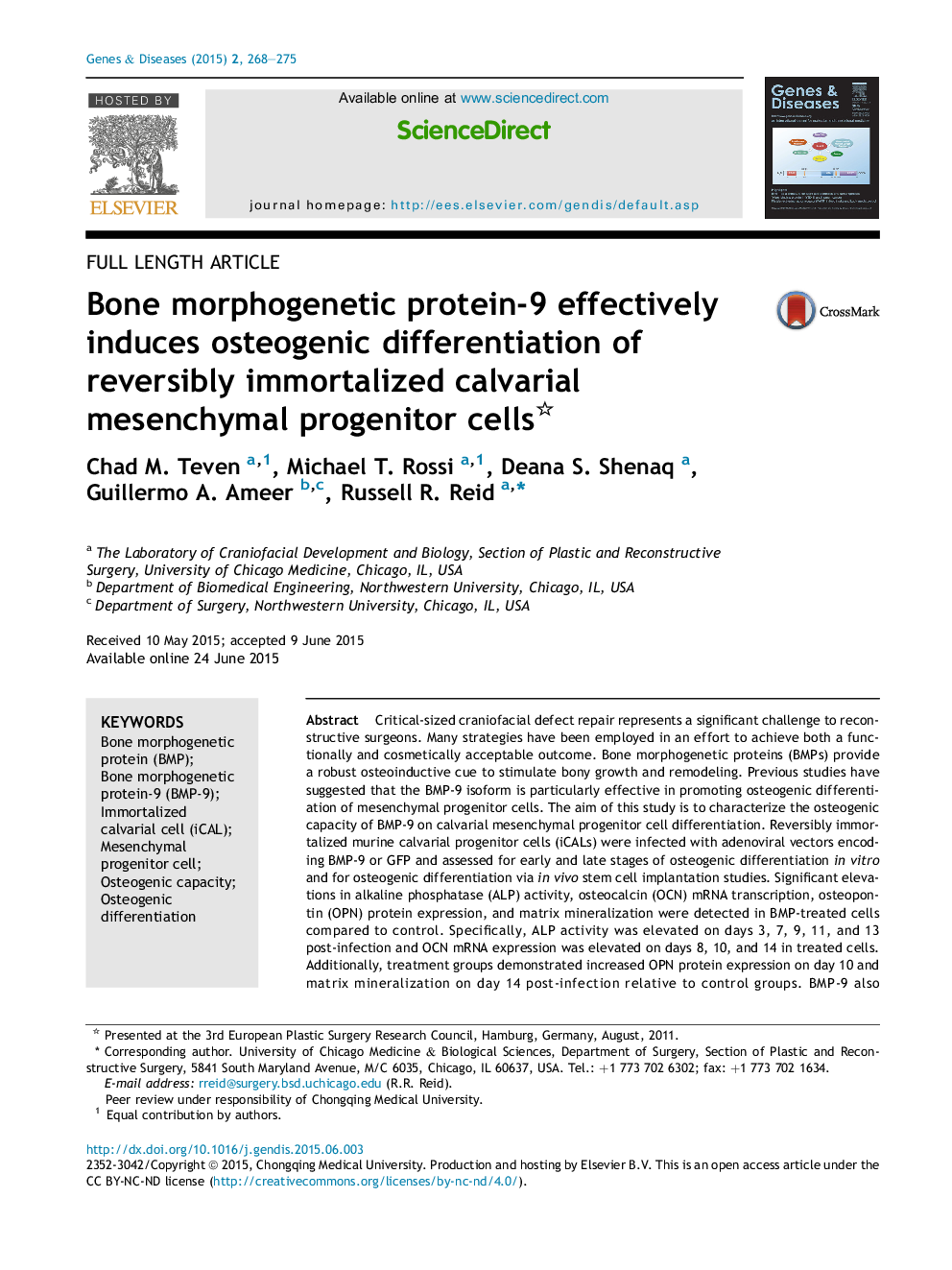| Article ID | Journal | Published Year | Pages | File Type |
|---|---|---|---|---|
| 2182627 | Genes & Diseases | 2015 | 8 Pages |
Critical-sized craniofacial defect repair represents a significant challenge to reconstructive surgeons. Many strategies have been employed in an effort to achieve both a functionally and cosmetically acceptable outcome. Bone morphogenetic proteins (BMPs) provide a robust osteoinductive cue to stimulate bony growth and remodeling. Previous studies have suggested that the BMP-9 isoform is particularly effective in promoting osteogenic differentiation of mesenchymal progenitor cells. The aim of this study is to characterize the osteogenic capacity of BMP-9 on calvarial mesenchymal progenitor cell differentiation. Reversibly immortalized murine calvarial progenitor cells (iCALs) were infected with adenoviral vectors encoding BMP-9 or GFP and assessed for early and late stages of osteogenic differentiation in vitro and for osteogenic differentiation via in vivo stem cell implantation studies. Significant elevations in alkaline phosphatase (ALP) activity, osteocalcin (OCN) mRNA transcription, osteopontin (OPN) protein expression, and matrix mineralization were detected in BMP-treated cells compared to control. Specifically, ALP activity was elevated on days 3, 7, 9, 11, and 13 post-infection and OCN mRNA expression was elevated on days 8, 10, and 14 in treated cells. Additionally, treatment groups demonstrated increased OPN protein expression on day 10 and matrix mineralization on day 14 post-infection relative to control groups. BMP-9 also facilitated the formation of new bone in vivo as detailed by gross, microcomputed tomography, and histological analyses. Therefore, we concluded that BMP-9 significantly stimulates osteogenic differentiation in iCALs, and should be considered an effective agent for calvarial tissue regeneration.
